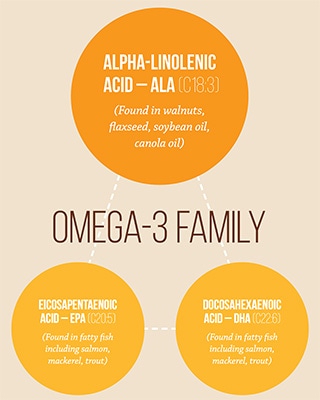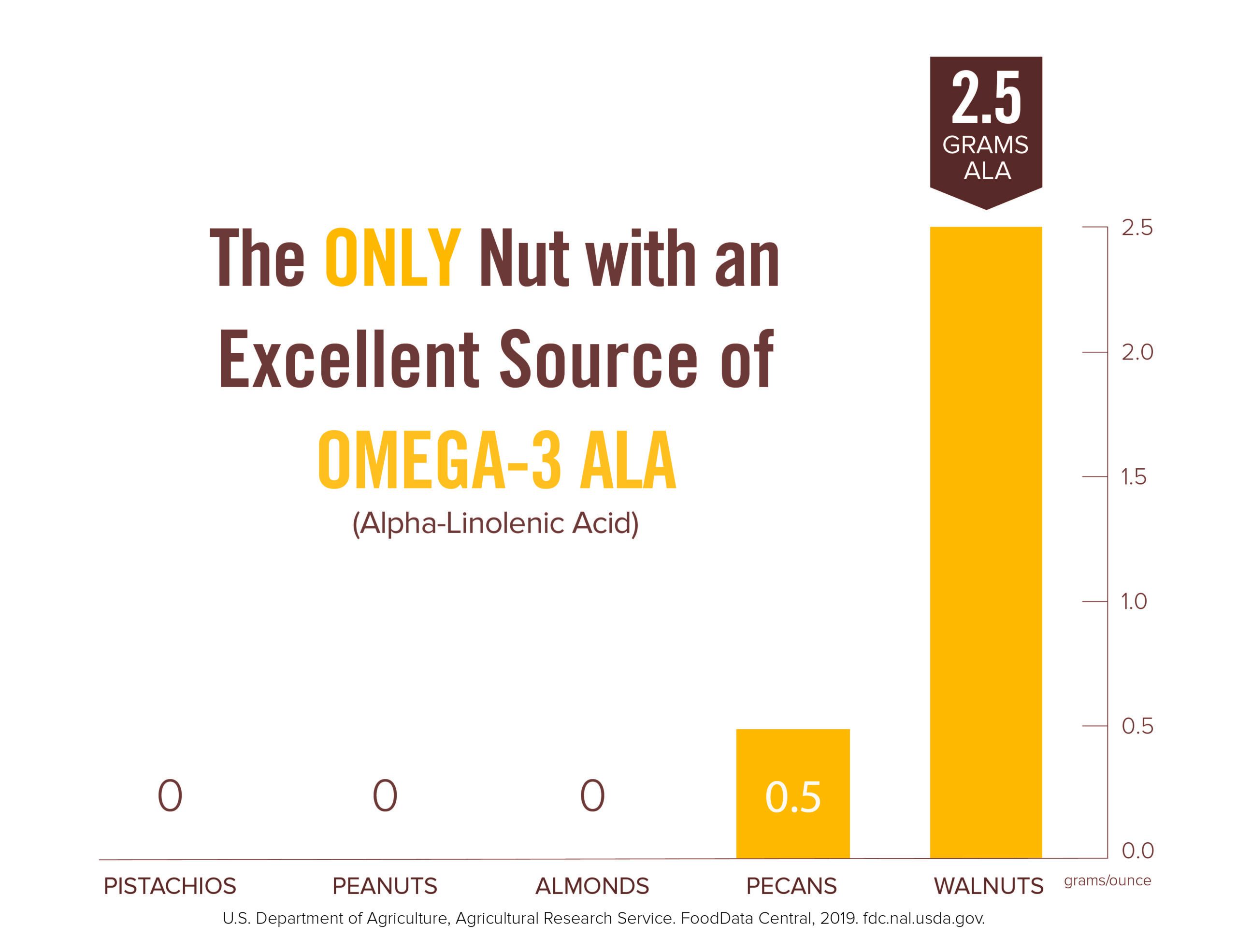 Research from the landmark PREvención con DIeta MEDiterránea (PREDIMED) study, one of the largest clinical trials, found that both plant and marine-based sources of omega-3s have complementary effects against mortality in a population with high seafood consumption.3 This secondary analysis looked at data from participants in the PREDIMED study. A total of 7,447 Spanish subjects (ages 55-80) at high risk of cardiovascular disease, but with no symptoms at baseline, were enrolled in the PREDIMED study and followed for an average of 4.8 years. Subjects were randomly assigned to a Mediterranean diet supplemented with mixed nuts (15g walnuts, or about 0.5 ounces, 7.5g almonds and 7.5g hazelnuts per day), a Mediterranean diet supplemented with extra virgin olive oil (at least 50g or 4 tablespoons per day) or a low-fat diet (control group).
Research from the landmark PREvención con DIeta MEDiterránea (PREDIMED) study, one of the largest clinical trials, found that both plant and marine-based sources of omega-3s have complementary effects against mortality in a population with high seafood consumption.3 This secondary analysis looked at data from participants in the PREDIMED study. A total of 7,447 Spanish subjects (ages 55-80) at high risk of cardiovascular disease, but with no symptoms at baseline, were enrolled in the PREDIMED study and followed for an average of 4.8 years. Subjects were randomly assigned to a Mediterranean diet supplemented with mixed nuts (15g walnuts, or about 0.5 ounces, 7.5g almonds and 7.5g hazelnuts per day), a Mediterranean diet supplemented with extra virgin olive oil (at least 50g or 4 tablespoons per day) or a low-fat diet (control group).
The study found that consuming omega-3s from plant-based sources, such as walnuts, may reduce risk of all-cause mortality, whereas marine-derived omega-3s, from fatty fish, may reduce the risk of heart-related fatalities. The greatest protective effects from total mortality were observed in diets that included both plant-based and marine-derived omega-3s, as they appear to act synergistically. Though the findings cannot prove causality, the research demonstrates that ALA may provide additional health benefits even in a population with high consumption of EPA and DHA from seafood.
Research in healthy adults (ages 18-35) exhibited that regularly eating foods that contain PUFAs, including walnuts, salmon, tuna, flaxseed oil, grapeseed oil, canola oil and fish oil supplements, may significantly improve fat metabolism and protect against the negative effects of saturated fats such as high cholesterol levels.4 For the study, researchers placed 26 healthy adults (13 men and 13 women) on a diet rich in polyunsaturated fats (21% polyunsaturated fat, 9% monounsaturated fat, and 5% saturated fat) or a control diet that was a typical American pattern (7% of polyunsaturated fat, 15% monounsaturated fat and 13% saturated fat) for seven days and had them consume a meal high in saturated fat (7% of polyunsaturated fat, 16% monounsaturated fat and 47% saturated fat) before and after the seven day diet. The diet rich in PUFAs was achieved by participants’ consuming the whole foods described above in conjunction with fish oil supplements. Researchers observed significant decreases in total cholesterol (TC) and low-density lipoprotein (LDL) levels in the study participants who followed an eating plan rich in PUFAs, even though they were young, healthy and didn’t have high cholesterol levels when the study began.
Residual confounding cannot be ruled out in observational studies (i.e., other lifestyle habits which are more common in adults who eat foods containing omega-3s could contribute to the study results).3 Larger and longer-term studies, as well as studies in diverse populations, are needed to clarify population-wide effects.3,4 Additionally, more clinical trials are needed to evaluate the effects of ALA intake on cardiovascular disease risk as well as determine the optimal quantity of all dietary omega-3 PUFAs to offer the greatest health benefit.1,3,4 In the context of a whole food diet, it is difficult to discern whether changes seen with the Mediterranean or PUFA-rich diet can be attributed to one specific type of PUFA, food source, or a combination of overall dietary factors.3,4


 Research from the landmark
Research from the landmark 
